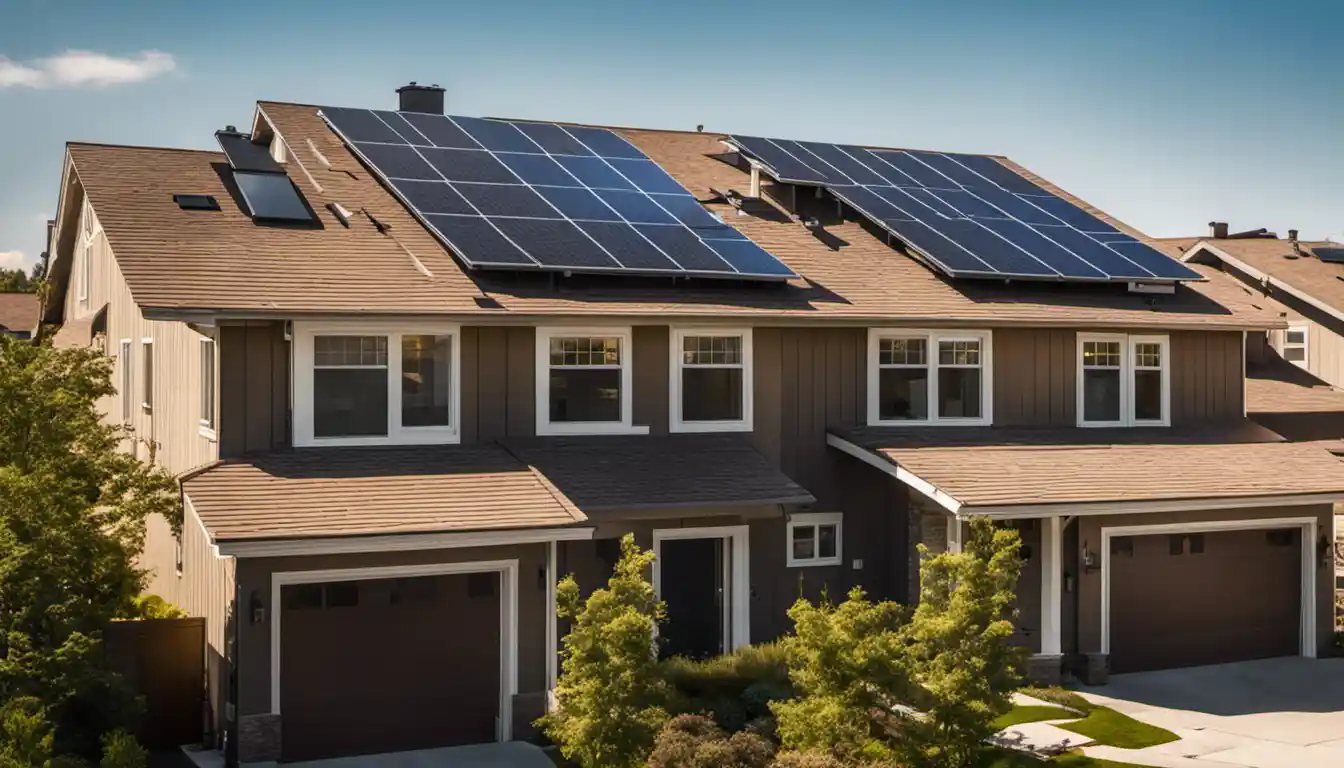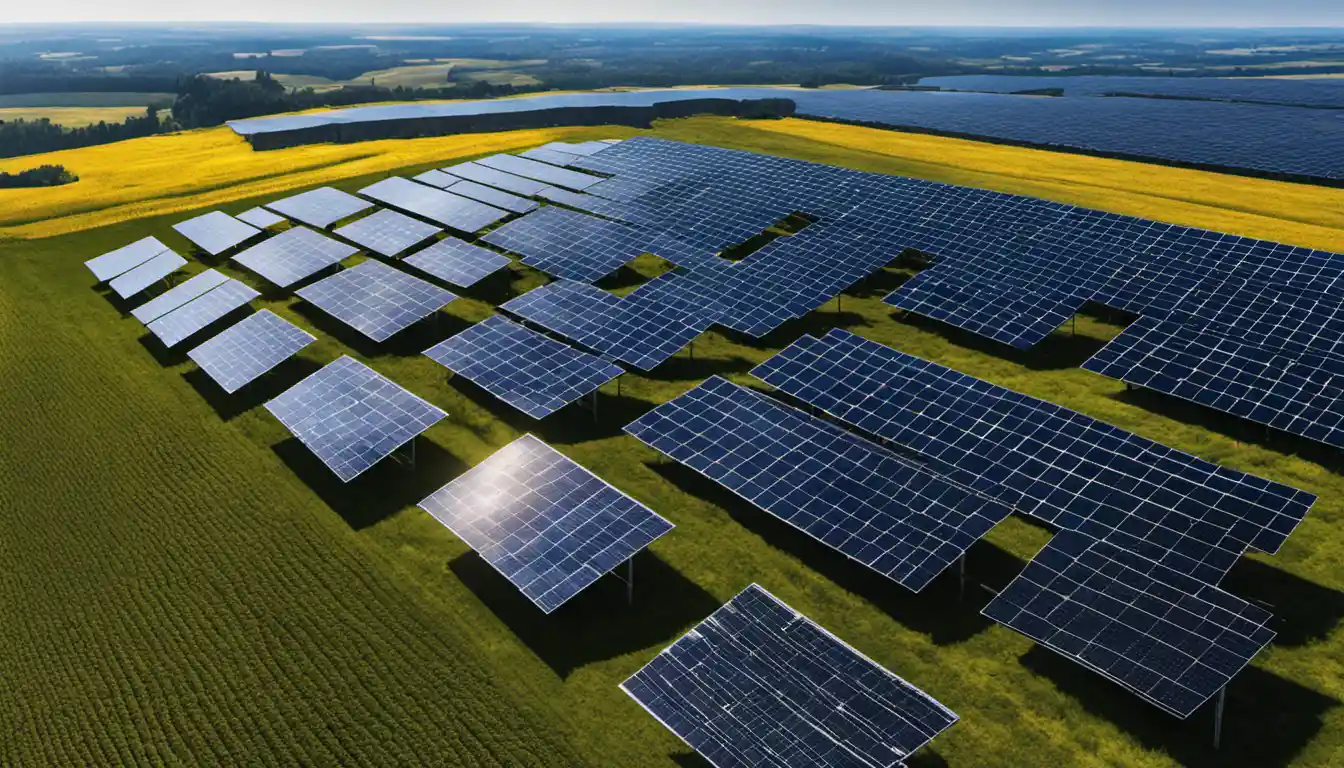Understanding Solar Energy
Solar energy is considered better for the future because it is a clean, renewable and sustainable power source that greatly mitigates greenhouse gas emissions, reducing our carbon footprint. Asides from being environmentally friendly, solar energy is also cost-effective in the long run as it reduces electricity bills and is becoming more efficient and affordable due to advances in technology.
The Basics of Solar Energy
The foundation of our discussion on “why is solar energy better for the future” begins at the core of the matter, the sun. This colossal celestial body, approximately 93 million miles from our planet, provides a virtually inexhaustible power source. Solar energy is harnessed by transforming sunlight into electricity using photovoltaic (PV) cells or concentrated solar power systems. These systems can be installed in various locations, from residential rooftops to massive solar farms, allowing for diversity in scale and application.
Solar Energy Technologies
There’s an array of solar technologies available today, including solar heating, photovoltaics, solar thermal electricity, solar architecture, and artificial photosynthesis, which harness the sun’s energy for diverse uses. Photovoltaic (PV) systems, for instance, convert sunlight directly into electricity using PV cells made from semiconductors.
How Solar Energy Interacts with Wildlife and the Environment?
Solar power installations have minimal impact on the local environment and wildlife compared to traditional power sources. For instance, solar farms can be designed to provide habitats for local flora and fauna, enhancing biodiversity, unlike power plants running fossil fuels that directly harm the environment with pollutants and greenhouse gas emissions.
The Importance of Solar Energy Research

Scientific research is crucial in uncovering new ways to optimize solar energy production and address potential issues related to solar energy installation, efficiency, and storage. The Solar Energy Technologies Office (SETO) plays a vital role in this research, pioneering numerous projects aimed at increasing the accessibility and efficiency of solar energy.
Solar Energy as The Future of Power
Solar energy’s astounding potential makes it a cornerstone in discussions of future energy scenarios. By harnessing this renewable resource, we’re stepping into a sustainable future where we’re less dependent on finite, environmentally harmful fossil fuels.
The Crucial Role of Solar Energy in Future Energy Scenarios
In pondering “what is the future of solar energy”, it’s essential to realize that it’s more than just a clean power source. It’s also a catalyst for job creation, industries’ transformation, and the reduction of power disparity globally.
Every new solar installation helps stimulate the economy, creates jobs in manufacturing and installation, and helps reduce energy poverty by providing power in remote areas that traditional power grids can’t reach.
Solar Futures: Analysis of Solar Energy’s Future in United States
Within the United States, the solar industry is growing rapidly. The National Renewable Energy Laboratory anticipates that by 2050, solar power could account for up to 45% of all energy needs, illustrating the expansive potential this renewable resource has.
At this juncture, three visions of America’s solar future appear on the horizon. The first is a scenario where solar energy plays a central role in electricity generation, heating, and transportation, leading to a significant decrease in non-renewable energy usage. The second envisions an increase in solar energy usage combined with electrification across all sectors, leading to a lower reliance on fossil fuels. The last one posits the transformation of the energy industry, with solar power propelling the shift to sustainable energy solutions.
The Untapped Solar Potential of Buildings
Buildings can be both consumers and producers of energy, a key concept in the green building movement. Currently, many commercial and residential buildings use photovoltaic panels, harnessing sunlight for electricity and thermal power for heating and cooling. Utilizing this untapped potential revolutionizes our traditional understanding of buildings, switching from energy consumers to energy producers.
Affordable and Accessible Solar for All: Democratizing Solar Energy

Democratizing solar energy — making it affordable and accessible to all — is paramount to maximizing its benefits. Tax credits, incentive programs, and group-purchasing options are facilitating solar adoption on a broader scale. Innovations in solar panel financing, like solar leases and power purchase agreements, are breaking down economic barriers to solar energy.
How Will Solar Energy Help Us in the Future?
The future trajectory of solar energy holds the promise of multifold benefits encompassing economic, environmental, and health implications.
Saving More Money with Solar Energy: Economic Implications
Solar energy saves money by offsetting electricity costs. As solar panel costs plummet and electricity prices surge, the cost balance is shifting, making solar energy an increasingly attractive alternative.
Solar Energy Helps Save The Environment: Environmental Implications
One of the most vital aspects of “why solar energy is the future” is its environmental impact. Transitioning to solar energy significantly reduces greenhouse gas emissions, contributing to a more sustainable, greener future.
Solar Energy Promotes Better Health: Health Implications
Air pollution caused by burning fossil fuels has been linked to respiratory problems, heart attacks, and other health issues. By reducing pollution, solar energy can improve public health significantly.
Solar is A Great Investment: Financial Implications

Investing in solar power can provide significant returns, similar to many traditional investment routes. With the declining costs and rising efficiencies of solar technology, the return on investment is increasingly appealing.
Building and Rebuilding the Future with Solar Solutions
Solar energy isn’t just for newly constructed buildings or tech-forward companies. It can be integrated into existing structures and traditional sectors, demonstrating the flexibility and wide-reaching implications of this renewable resource.
The Role of Solar Energy in Infrastructure Development
Solar energy plays a pivotal role in developing resilient, sustainable infrastructure. From powering streetlights to providing electricity in remote areas, solar power can transform and enhance infrastructure capacities, impacting societies and economies positively.
Making Solar Energy Accessible for Everyone, Everywhere
One of the greatest strengths of solar energy is its universality. Sunlight is available (at least for part of each day) everywhere on earth. This universal accessibility can revolutionize energy access, especially in remote or impoverished regions that lack traditional electricity infrastructure.
Conclusion: Embracing the Solar Future
Considering the key advantages of solar power, it isn’t hard to see “why solar energy is the future”. From its role in reducing greenhouse gas emissions, to its potential to democratize energy access, solar energy holds the promise of a more sustainable and equitable future for all of us.
Want to learn more about the advantages and disadvantages of solar energy? Dive deeper into our comprehensive guide to understand the full potential of this renewable power source.
Together, let’s embrace the solar future for a brighter tomorrow!



